You can never get enough of compact prefabricated cabins. Factory-made homes have been a major trend lately, in the times of coronavirus crisis with all its social distancing limitations. Reducing damage to the site and the carbon footprint to a minimum, these prefabricated structures also minimize building time and make a great sustainable choice for construction in remote places.
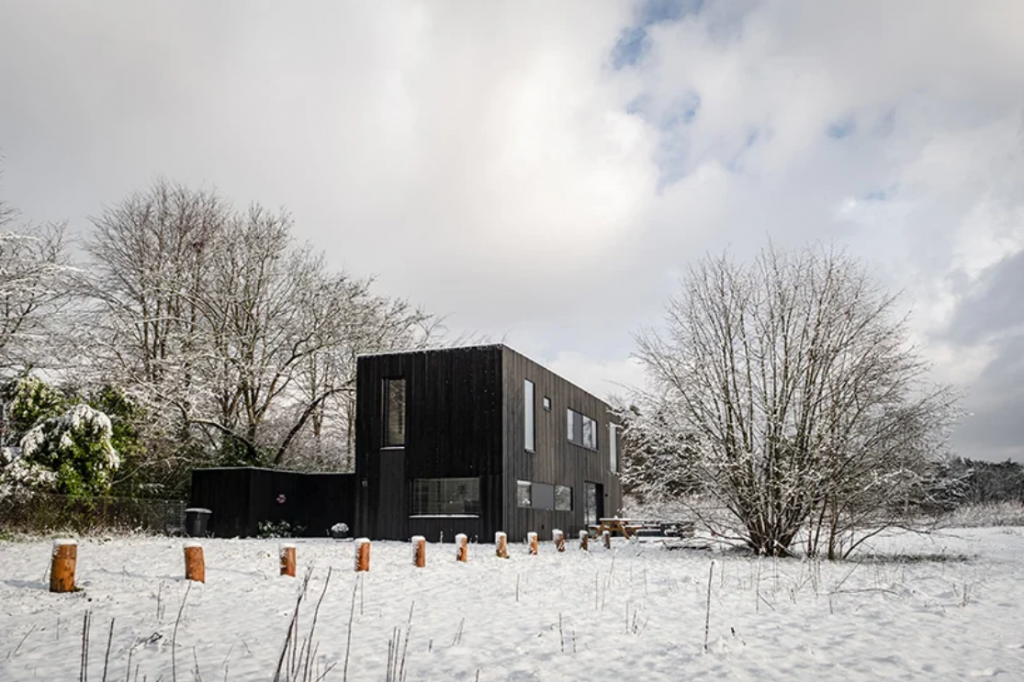
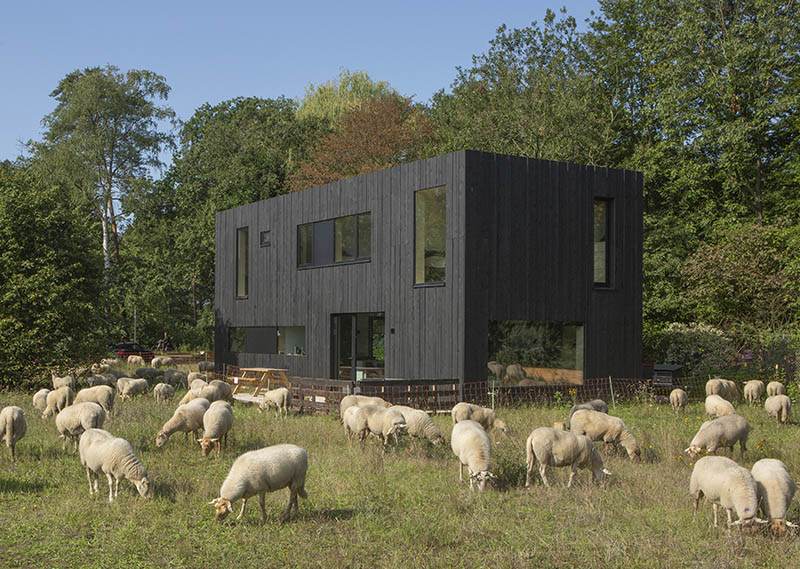
Wooden cabin by Joris Verhoeven (also header image)
Dutch architect Joris Verhoeven has designed a prefabricated wooden cabin in the Drijflanen nature reserve in Tilburg to merge into the environment as much as possible. Due to its matte black paneling, the house almost disappears against the edge of the trees with its dark trunks in front of it. To protect the pine planks in a natural way, the wooden sidings have been treated with a specially cultivated fungus that can self-repair in case of damage of the bio-coating. The weathered look as well as the different sizes of the sidings give the façade depth and natural appearance.
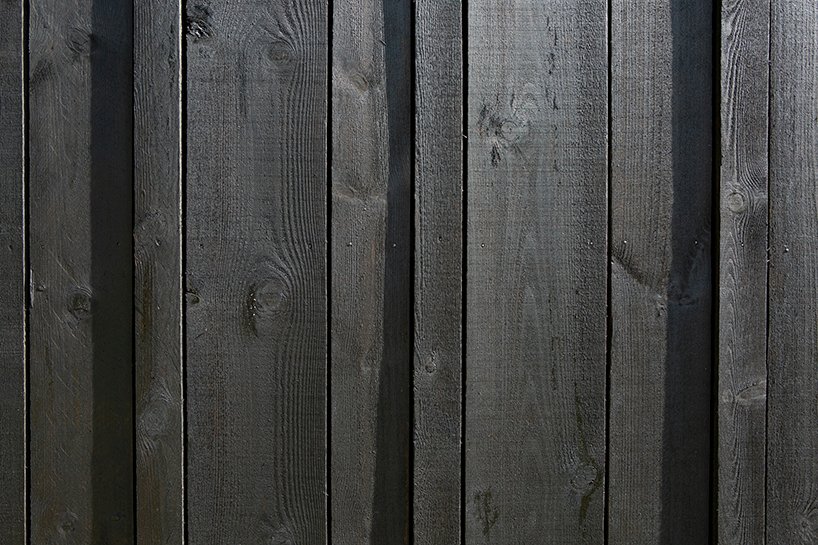
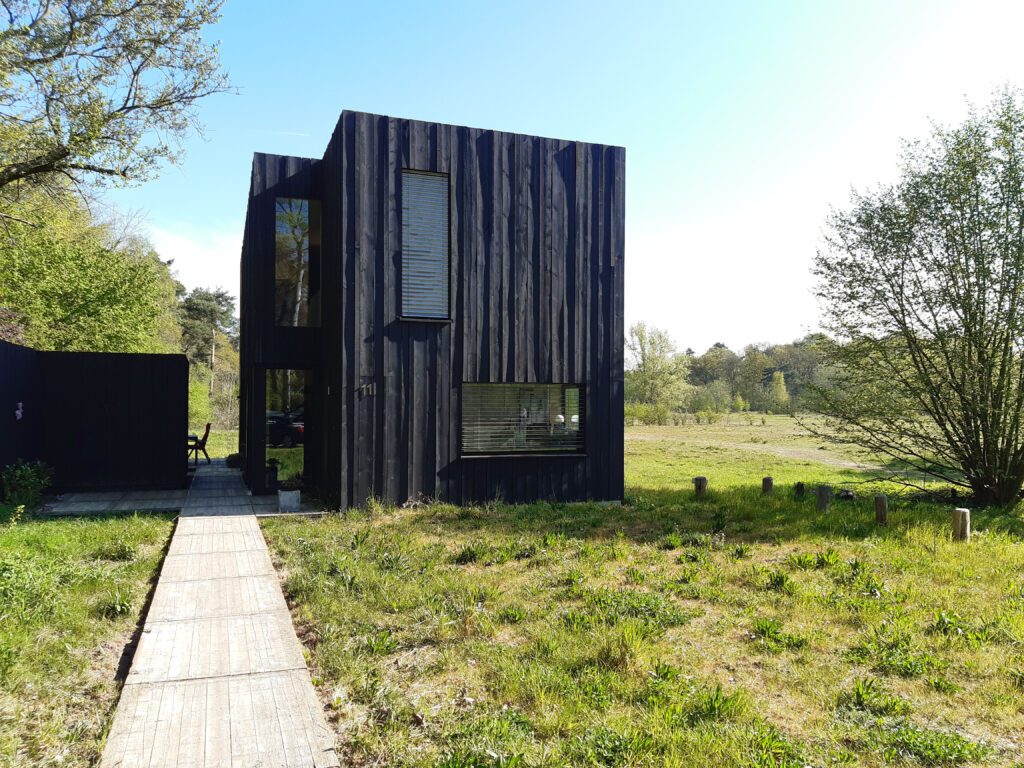
Wooden cabin by Joris Verhoeven
In addition to an ecological finish, the structure of the house is completely bio-based. The cabin is prefabricated out of wooden cassettes filled with flax insulation, with birch plywood used as finishing for the interior side. The modular structure greatly benefits construction duration and cost. After pouring the foundation floor, the house can be erected in just 3 days.
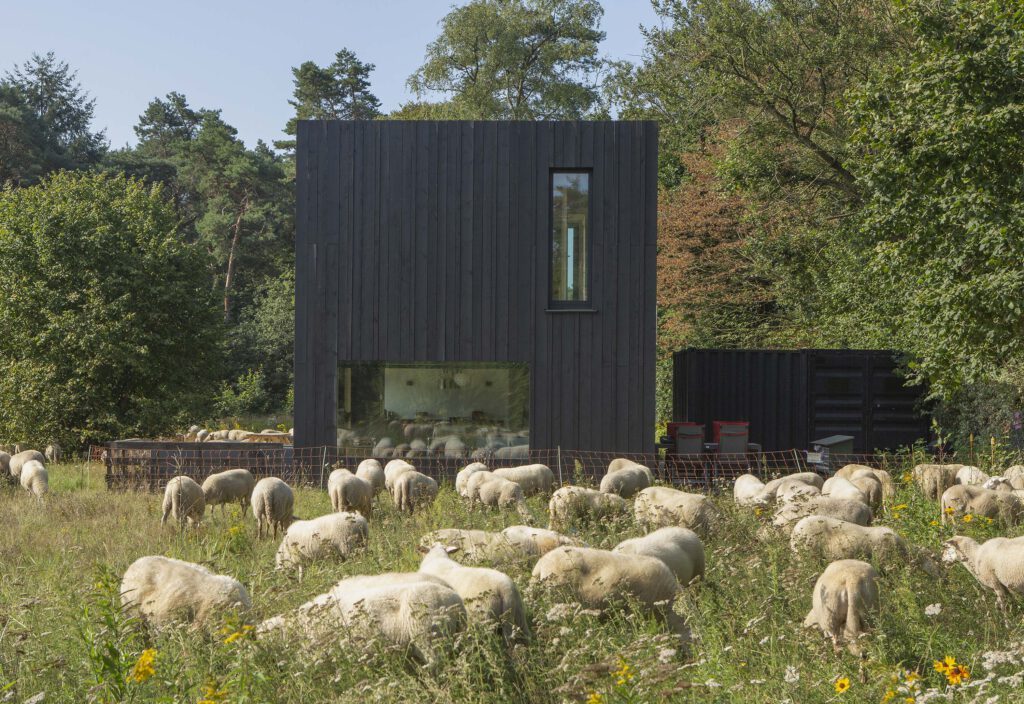
Wooden cabin by Joris Verhoeven
With the solar and thermal panels concealed on the roof, heat pump and no use of water, the cottage is totally self-sufficient boasts a negative carbon footprint.
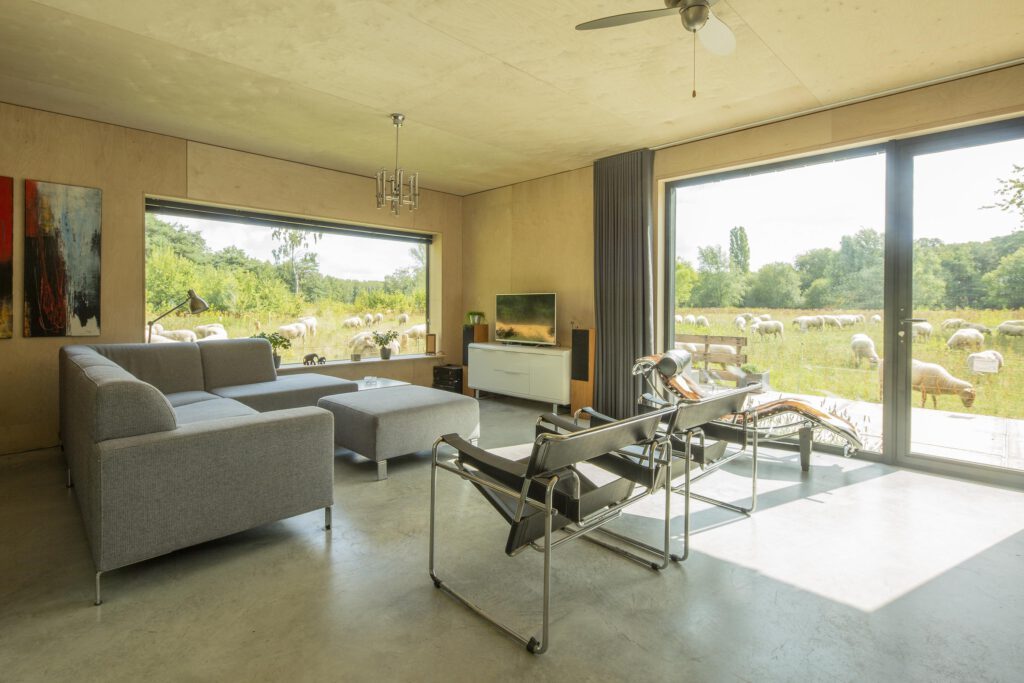
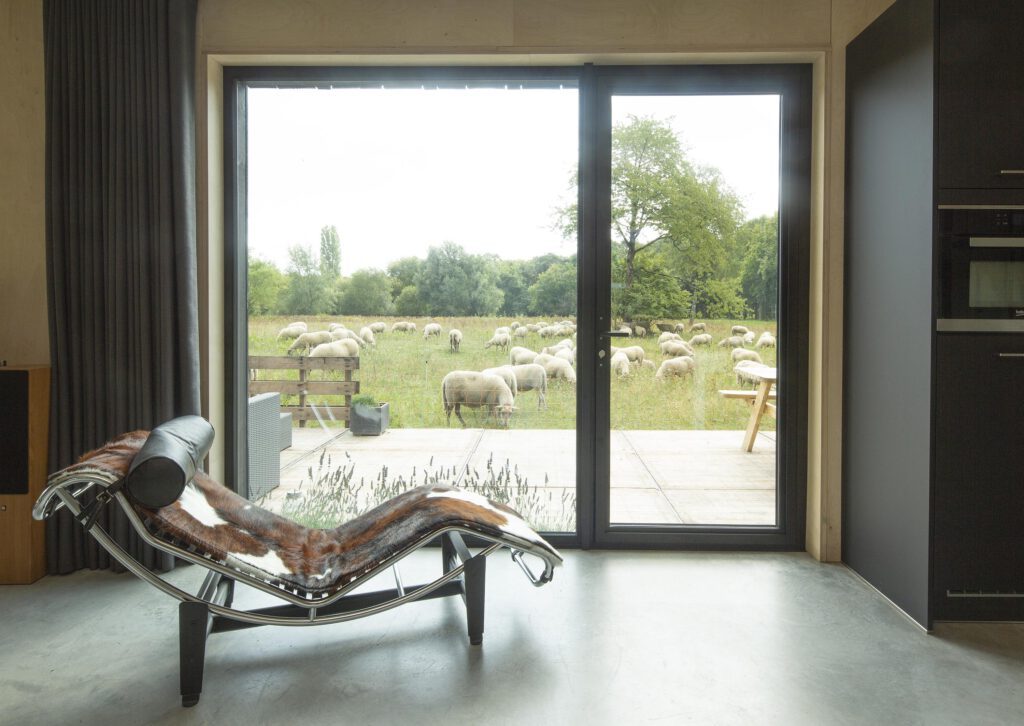
Wooden cabin by Joris Verhoeven
Inside, the rural aesthetic of the project is enhanced through the use of wood finishing. The decorating birch plywood is complemented by details finished in matte black, making the inside and outside of the house are deeply related to one another.
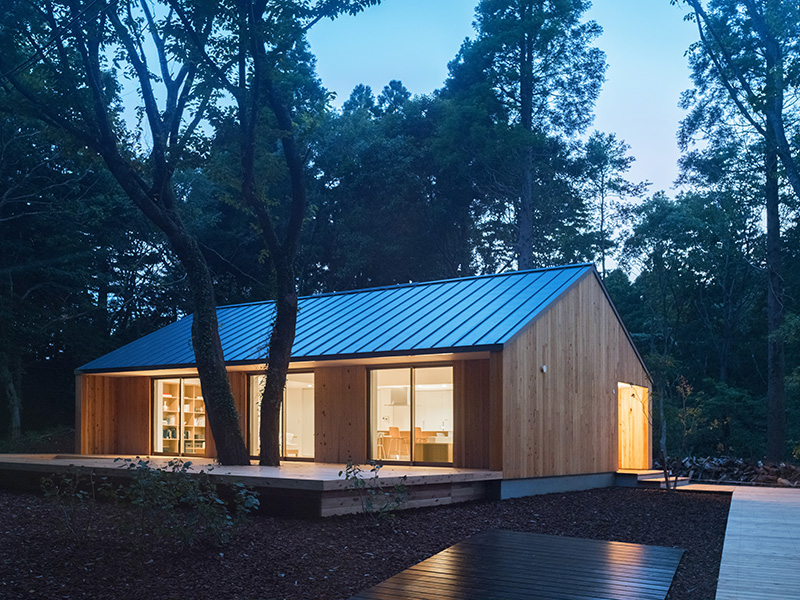
Yō no Ie (Plain House) by Muji
In response to a growing demand for low-profile homes in suburban Japan, the renowned design brand Muji has developed a single-storey 74 sqm prefabricated home called Yō no Ie that includes a large outdoor deck, which enables occupants to interact with gardens that are difficult to realise in urban areas.
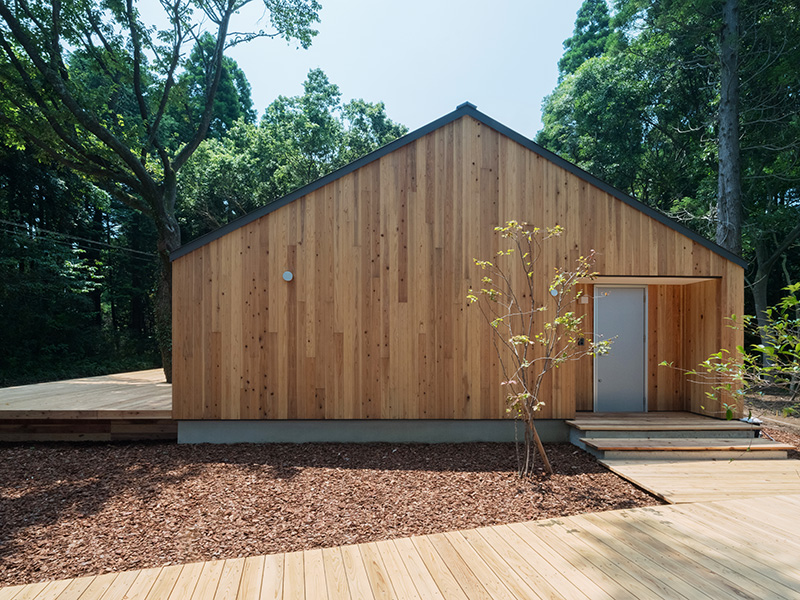
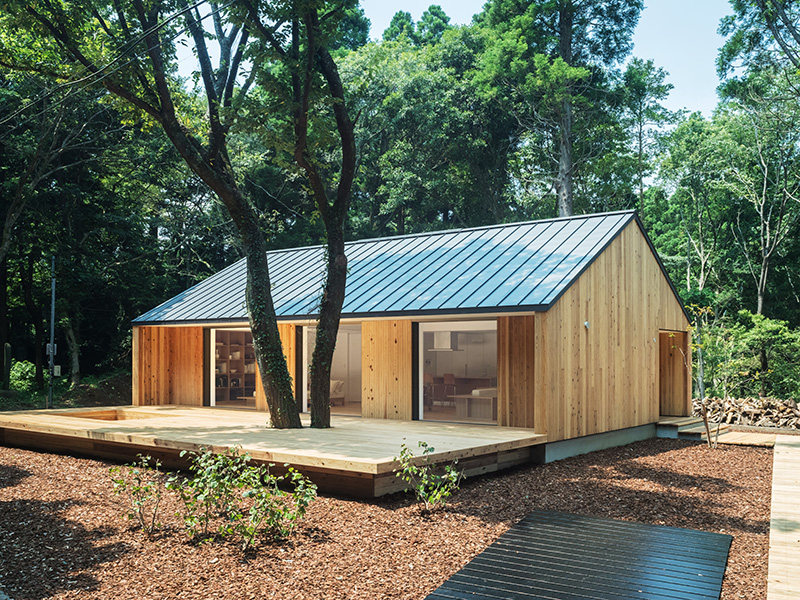
Yō no Ie (Plain House) by Muji
The exterior of the cottage is clad in Japanese chestnut, while the roof is made from galvalume steel sheets.
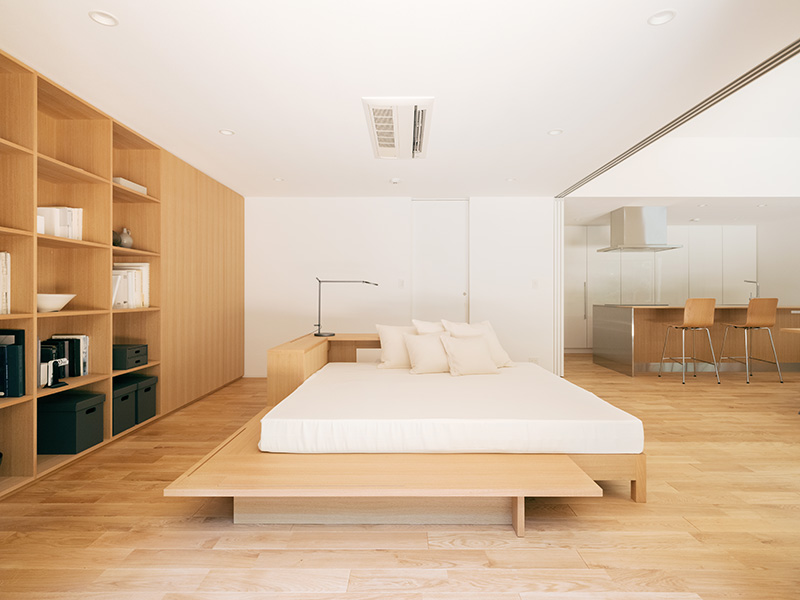
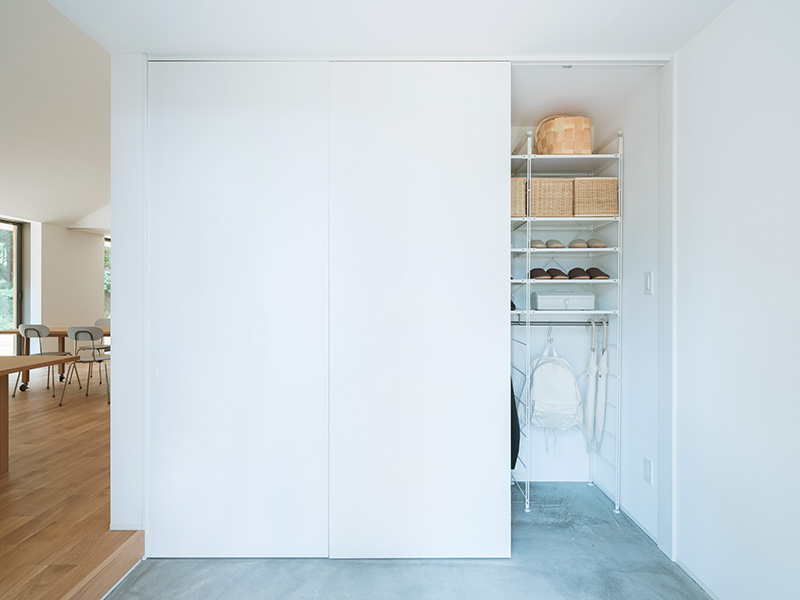
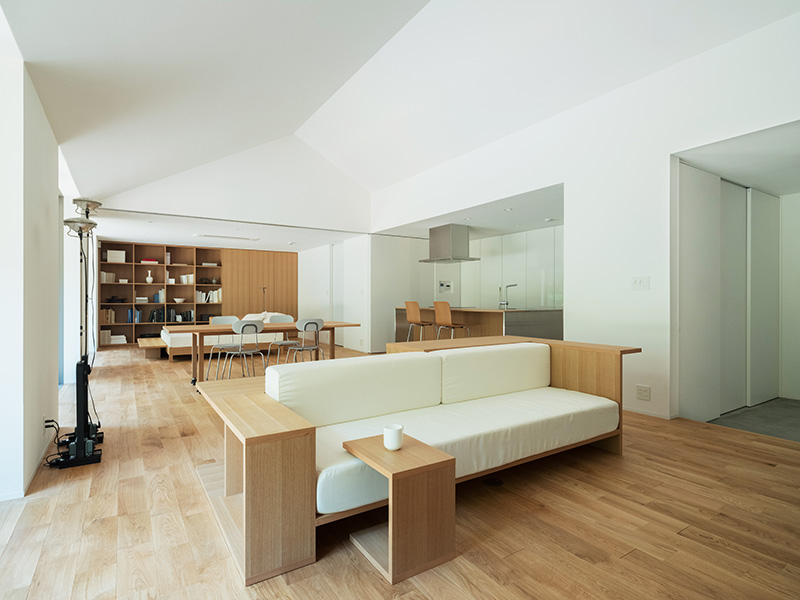
Yō no Ie (Plain House) by Muji
The design does not have any columns or fixed divisions allowing for flexibility to meet the users’ changing needs. The overall interior is composed of pale wood and white walls for a minimalist appearance.
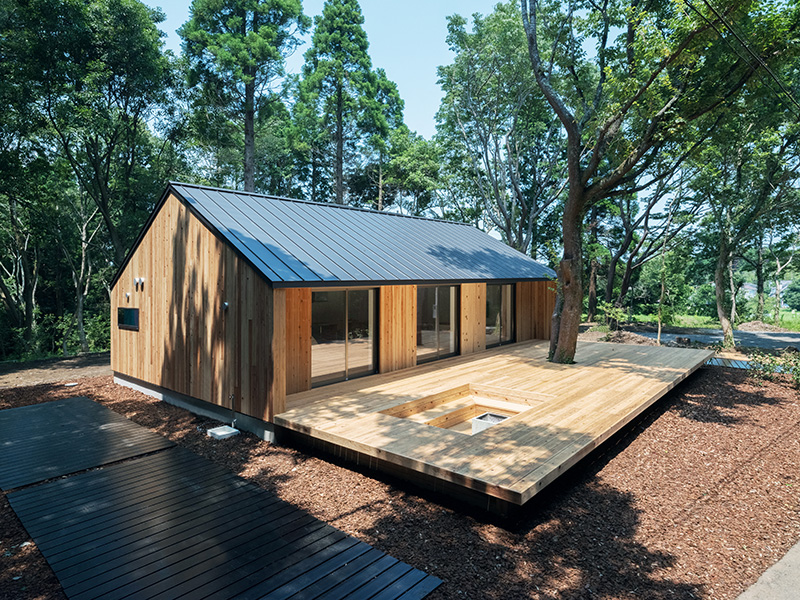
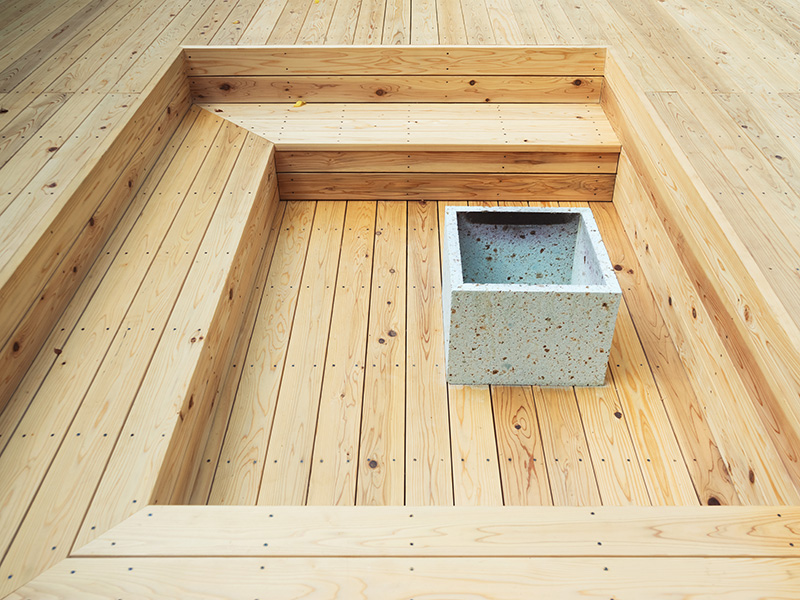
Yō no Ie (Plain House) by Muji
Three full-height doors line one side of the house, opening up to the outdoor decking that forms a seamless extension of the house’s interior. This addition, which features a sunken segment for use as a fire pit or garden, is conceived to encourage inside-outside living as owner’s can easily move their furniture out to create an external living space.


Tochka na Karte Country Hotel by Rhizome
Architecture firm Rhizome based in St. Petersburg, Russia, has designed 15 private houses for the ‘Tochka na Karte’ country hotel complex settled amid the wild Karelian landscape in the North of Russia.
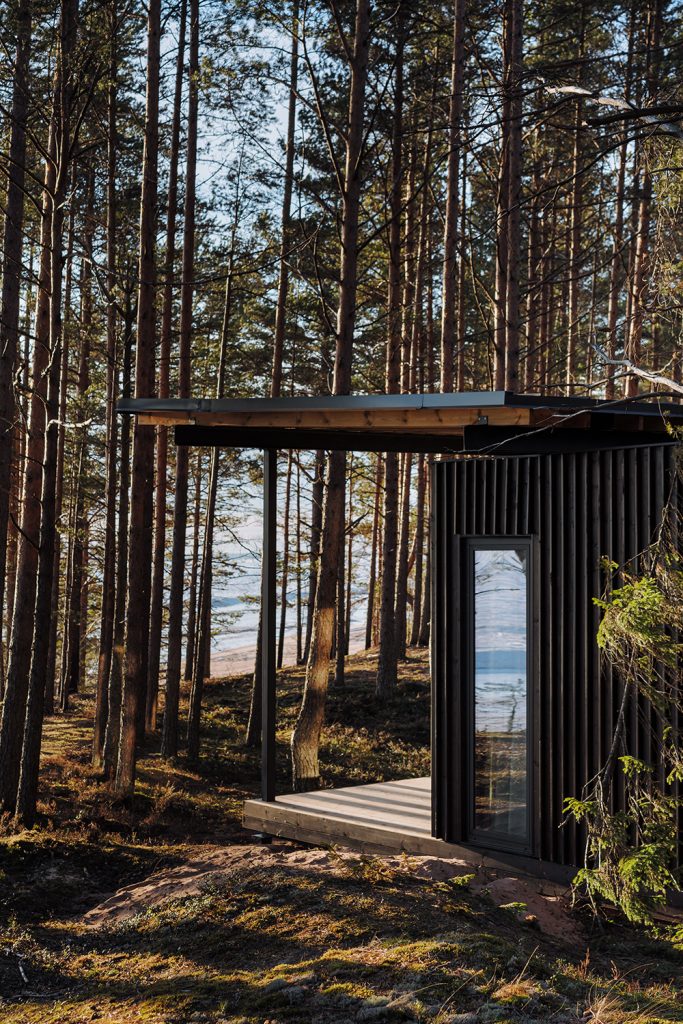
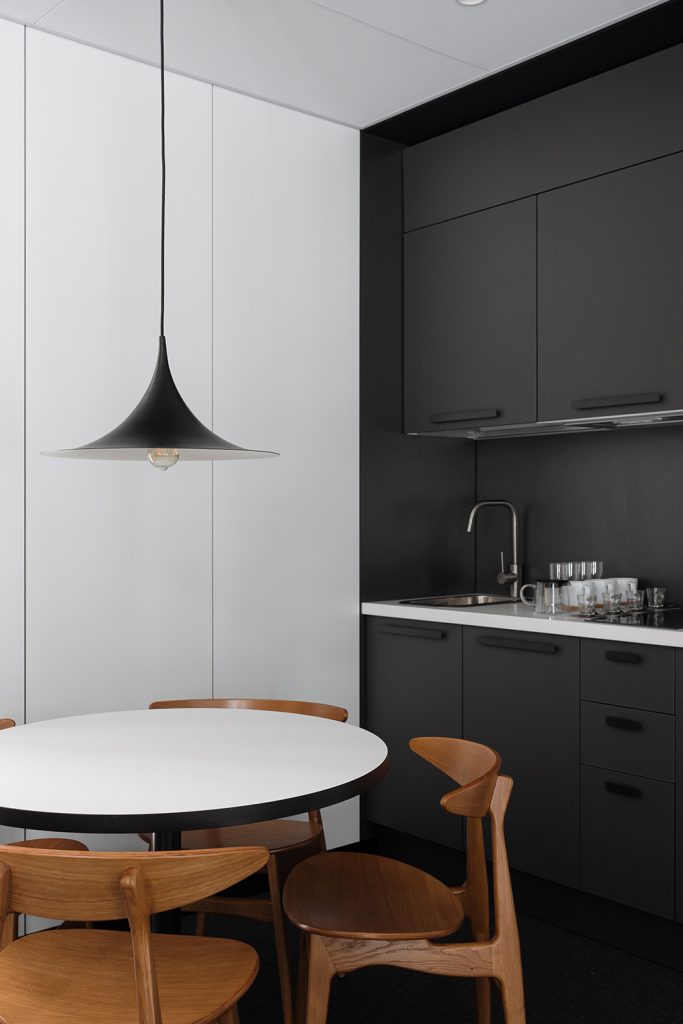
Tochka na Karte Country Hotel by Rhizome
Built with the usage of prefabricated technology, which is the most suitable and sustainable choice for such a remote location, each home consists of two units. The modules comprise an L-shaped space, which includes a large terrace and a compact space capable of accommodating up to four guests. Apart from basic and necessary elements, the houses are equipped with a personal sauna – an essential attribute of truly Nordic vacation.


Tochka na Karte Country Hotel by Rhizome
The textures of façades clad in pine wood vary from smooth to ribbed surfaces emphasizing the aesthetic of gaps and edges. Each of the four designs comprises a specific variation of canopies – either the monolith ones that follow the general logic of the volume, or the ones that ‘float’ in the air highlighted by a window.